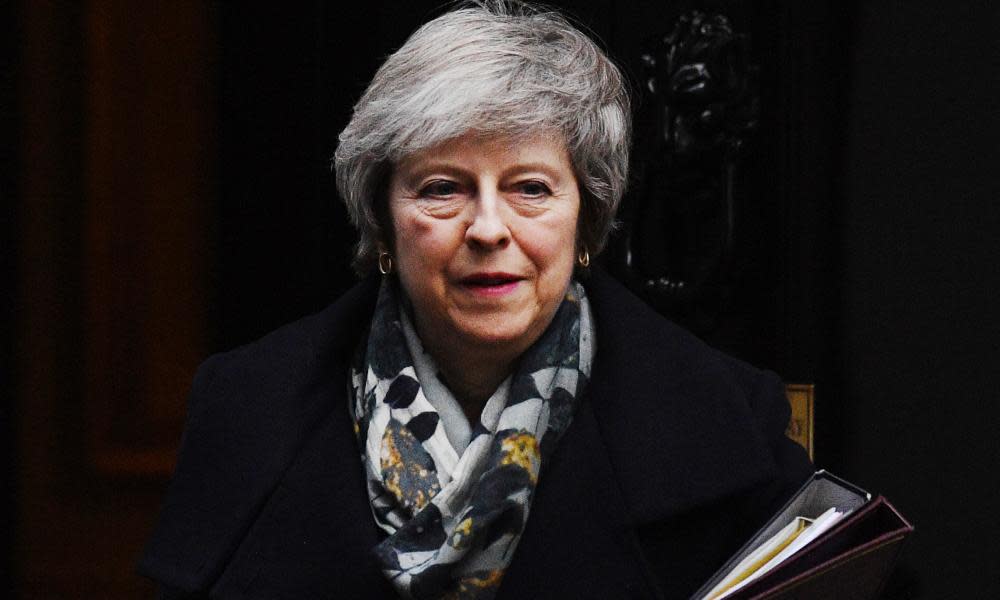The Guardian view on the May deal: sinking not waving

Theresa May has three objectives. The first is to remain prime minister. The second is to get a parliamentary majority for her withdrawal agreement made with the European Union. The third is to fulfil the first two objectives without splitting the Conservative party. She is unlikely to succeed. The reason rests with the principal opponents in her own party: those Tory MPs who want a second referendum and those who want a hard Brexit. Mrs May wanted both to act in their narrow self-interest rather than cooperating with each other by simultaneously rejecting her agreement. Her line had been that they must choose from among her deal, no deal, or no Brexit. However, the hardline Brexiters did not think her deal was enough to stop another referendum, while the supporters of another referendum in the Tory party did not see her deal as a way to stop the rightwing absolutists getting a no-deal outcome. Significantly, both wings of the Tory party condemned it as “vassalage”. Mrs May’s failure to win either of these factions to her side has been at the root of her parliamentary troubles.
Things will not improve with her procrastinations. Instead of peeling off internal opponents, she has hardened opposition. Despite claims to the contrary, Brussels has no reason to throw Mrs May a lifeline. Neither will the Labour party. Mrs May yearns for an opposition that would split in the way Labour did in the fractious politics of the early 1970s when Europe divided the left. If only, the prime minister and her allies thought, there were sizable numbers of Labour rebels – 69 rebelled in 1971 – who would back her on the principle of leaving the EU as the referendum of 2016 mandated. It is a sign of how deluded Mrs May’s team were that they seriously weighed such a rebellion.
This country needs to have the vote on the Brexit deal to crystallise where the Commons stands. Late January seems to leave MPs hardly enough time to demonstrate which policy commands the majority or largest minority in parliament. This represents a test for the way the cabinet views the Commons. The riddle of Brexit will not be solved by a series of cabinet leaks which are job applications for prime minister dressed up as serious policy interventions. If the “safety valve” of a parliamentary vote is not opened then Britain’s political system will move inexorably towards an unmanageable level of polarisation, which will render it impossible for the country to manage many basic tasks, let alone implement fresh policies to address emerging social and economic realities. There is a good reason that a no-deal will win very little parliamentary support – it represents too high a price to pay in terms of economic loss for leaving the EU.
For much of her time as PM, Mrs May has hidden behind a mask acceptable to the hard Brexiters. It was not until this summer that the mask was removed, allowing the party to see through the disguise: that the trade-offs and compromises would see Britain knocked about by the EU, a global heavyweight; that smaller countries or old rivals such as Ireland or France could, in the words of the UK’s former top diplomat in Brussels, Sir Ivan Rogers, “take back control of things you would rather they didn’t”; that Britain outside the EU might be a bystander in the setting of policies that would affect voters’ lives; that we had not intended to vote in June 2016 to make ourselves poorer, but that is what we are going to be. The penny has dropped. Brexit has been to the Tory party less of a mask that hid – or even subverted – a reality. Instead Brexit is more akin to a political shirt of Nessus, burning anyone who puts it on.

 Yahoo News
Yahoo News 
